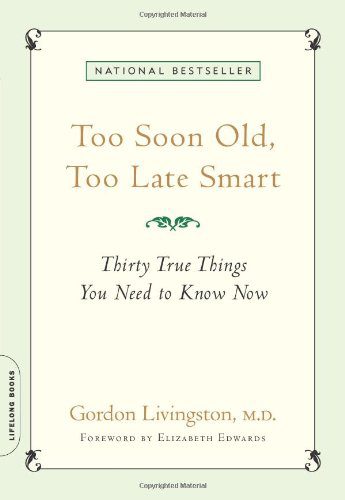It is that time of the year again when we set New Years Resolutions. We resolve to change for the better, change or improve bad habits, achieve personal goals and make strides throughout the year. Like the snake, we strive to shed our old skin, like the caterpillar, we transform to become a butterfly. We set these goals yearly with great enthusiasm and pump at the start of the year but most of us begin to falter as the year goes by. We set goals such as losing weight, saving more money, become financially independent, maintain an healthy diet, exercise more, read more book, etc.
Why We set New Years Resolution
We all participate in this yearly ritual for a variety of reasons such as our cultural inclination, religious indoctrination on fresh starts (Christainity (Born Again), Islam (ablution), Judaism(ritual purification), social bandwagon effect, public pressure from our peers, social media and society among other factors.
Pervasiveness of not following through
Most of us have stopped setting New Years Resolutions because we consistently failed to follow through or achieve our goals yearly. We could not sustain the momentum and the enthusiasm we experienced in January. Life happened, we got busier with work, we got bills to pay, children to raise, responsibility to uphold, relationships to nurture etc. We’ve all been there, the issue is so pervasive that some industries have their business model based on us not following through or showing up for our commitments. Gyms and Fitness centres push and sell yearlong contracts to their customers knowing that they won’t maintain the January/New Years Momentum.
NPR observed a particular fitness chain with an average 6,500 members per gym but could only hold 300 members. The Chain can do this because it knows that members won’t show up. After all, if everyone who had a gym membership showed up at the gym, it would be Thunderdome. If you are not going to the gym, you are actually the gym’s best customer. 1
The Fresh Start Effect – Temporal Landmark
Research suggest that people are more likely to adopt changes on a temporal landmark than during anytime of the year. The Fresh Start Effect: Temporal Landmarks Motivate Aspirational Behavior study by Hengchen Dai, Milkman, K.L., & Riis, J. (2014) concludes that people are more likely to tackle their goals immediately following salient temporal landmarks. The research shows that Google searches for the term “diet” (Study 1), gym visits (Study 2), and commitments to pursue goals (Study 3) all increase following temporal landmarks (e.g., the outset of a new week, month, year, or semester; a birthday; a holiday).
Their study suggest that special occasions and calendar events (e.g., a birthday, a holiday, the beginning of a new week/month), which demarcate the passage of time and create numerous “fresh start” opportunities at the beginning of new cycles throughout each year, are associated with subsequent increases in aspirational behavior
The beginning of the year is widely documented as a time when millions of people commit themselves with atypical vigor to achieving their goals, such as losing weight, eating more healthfully, quitting smoking, obtaining a better education, and saving more money (Marlatt and Kaplan 1972, Norcross et al. 2002). People are most likely to think about their health on Mondays (Ayers et al. 2014).
Across three field studies, the paper demonstrate that people are more likely to pursue various types of aspirational behavior (e.g., dieting, exercising, goal pursuit) at the start of “new epochs” initiated by the incidence of temporal landmarks, including the beginning of a new week, month, year, and school semester, as well as immediately following a public holiday, a school break, or a birthday. 2
They postulate that temporal landmarks, including personally meaningful events (e.g., birthdays, job changes) and socially constructed calendar partitions (e.g., the outset of a new month, the observance of a public holiday), demarcate the passage of time and open new mental accounting periods.
Why we don’t Follow through
One of the reason that we don’t usually follow through on our resolutions, goals and aspiration is our natural human tendency to avoid pain and seek pleasure. We want to win the prize without paying the price, especially in our instant everything environment of instant messaging, instant communication, instant food, instant/overnight success, a media that glorifies the glitz and glamour but not the grit, grind and hustle. We would go to any length to avoid the pain of going to the gym, studying all night, trusting the process for the instant gratification of partying all night, binge watch Netflix series, mindless TV watching/social media scrolling. We mistake making a wish for setting a goal, motion for movement, activity for action, busyness for effectiveness, growth for development.
People will do more to avoid pain than they will do to gain pleasure. – Tony Robbins
If you cannot pay the price, you cannot win the prize. Garbage In, Garbage out. If you work hard at a goal, with time your hard work would eventually show. Great things take time, effort, relentless pursuit and dedication. Likewise, if you take short cuts, you would be cut short. It is only bad things such as the loss of a loved one, an accident etc that happens suddenly.

Great Things take time
Psychologist and military veteran Dr. Gordon Livingston shares thirty common sense wisdom in his book, Too Soon Old, Too Late Smart: Thirty True Things You Need to Know Now. One of the principle Livingston shared is the truism that : “Only bad things happen quickly”. Great things take time, grit, endurance and commitment. He writes
When we think about the things that alter our lives in a moment, nearly all of them are bad: phone calls in the night, accidents, loss of jobs or loved ones, conversations with doctors bearing awful news. In fact, apart from a last-second touchdown, unexpected inheritance, winning the lottery, or a visitation from God, it is hard to imagine sudden good news. Virtually all the happiness-producing processes in our lives take time, usually a long time: learning new things, changing old behaviors, building satisfying relationships, raising children. This is why patience and determination are among life’s primary virtues. 3
Pleasure Principle
We’ve all been there, the initial adrenaline rush, enthusiasm, and motivation in January but by early March we are back to our old routines. Have you ever wondered, why does this happens yearly. Human behaviour is somewhat predictable. As Austrian Neurologist and Founder of Psychoanalysis Sigmund Freud’s Pleasure Principle states : Humans instinctively seek pleasure and avoid pain to satisfy our biological and psychological needs. Freud observed that humans go to a great length to avoid momentary pain, especially at times of psychological weakness or vulnerability. 4
The goal towards which the pleasure principle impels us – of becoming happy – is not attainable: yet we may not – nay, cannot – give up the efforts to come nearer to realization of it by some means or other. – Sigmund Freud
According to US government’s website (DHS.gov, 2020), losing weight, exercising more, quit smoking, improve finances, focus on self-care are among the most popular New Year’s resolutions among Americans. They offer the following tips for achieving new year’s resolution:
If you plan to make New Year’s resolutions this year, limit the number of resolutions you make so that you can focus on making important changes to spark positive change. Choose a specific, realistic goal and break it down into small, achievable steps. Write your goals down and seek support through your friends and family to hold yourself accountable. Don’t be discouraged if you slip up from time to time; view these relapses as an opportunity to renew your resolve to achieving your goals. 5
As English Writer and Religious Thinker William Penn once observed “No Pain, no Palm; no thorns, no throne; no gall, no glory; no cross, no crown”. No Pain, No Gain…Great things take time, commitment, consistency, dedication and relentless pursuit. We set these lofty goals at the start of the year but as the going get though, we begin to relent on our commitment. Most of us don’t follow through with our goals as a result of the some factors such as not writing down our goals, not making it a priority, setting unrealistic goals.
Here are some tips for reaching your goals this year:
- Start with WHY
- Set Smart Goals
- Write down your goals
- Routinize your goals
- Prioritize your goals
- Set Constraints such as Public Pressure/Accountability Partners/Commitment contract
- Self Compassion
- Keep it simple
- Set Reminders
- Review your goals daily, weekly, monthly and yearly.
There are no unrealistic goal, just unrealistic timelines. For example, If you want to meditate more this year, instead of setting a goal of meditating one hour per day; try setting a goal of meditating 10 minutes per day. Breakdown your goals, set atomic achievable goals. With time you can begin to increase the time for meditating daily. Setting goals is easy, following through is the hard part. You don’t have to be great to start but you have to start to be great. The hard times are going to come, the middle is going to be messy, winter is coming but you have to remember why you started and your long term purpose of setting the goal.
Have self-compassion when you don’t follow through with your goals somedays. You need to continuously review your goal to determine what is worth continuing or discontinue. Humans are the only animals that have the capacity to set a future goal and will it to happen. As Napoleon Hill once quipped “Whatever Your Mind Can Conceive and Believe, It Can Achieve.” You’ve got this.
All the Best in your quest to get Better. Don’t Settle: Live with Passion.



Comments are closed.